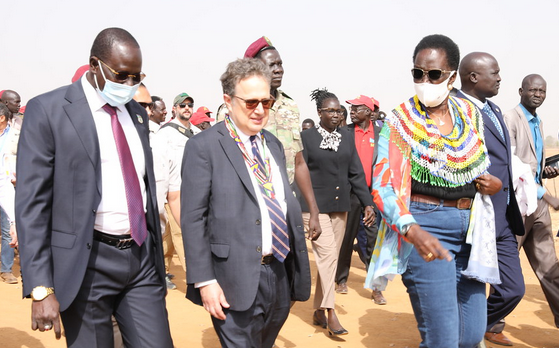The United States, through the U.S. Agency for International Development (USAID), is providing more than USD 288 million in additional humanitarian assistance to the people of South Sudan as populations across the country face acute food insecurity and malnutrition,” A USAID statement said.
The new funding was announced on Thursday by U.S. Ambassador to South Sudan Michael J. Adler during a visit to Aweil in Northern Bahr el Ghazal State.
“An estimated 7.8 million people – approximately two-thirds of South Sudan’s population – are likely to face crisis or worse levels of food insecurity during the coming lean season, including nearly 3 million people who are likely to face emergency levels of acute food insecurity and 43,000 people projected to experience catastrophic food insecurity in areas affected by conflict and climatic shocks,” the statement read. “Wherever the United States provides humanitarian assistance, it does so on the basis of need. At the same time, we recognize that human factors lie at the root of the humanitarian crisis in South Sudan. These include subnational violence, which also limits humanitarian access, as well as poor public financial management.”
The United States called upon the Revitalized Transitional Government of National Unity to take urgent action to address these issues.
According to the statement, this additional funding will enable USAID’s partner, the UN World Food Programme (WFP), address the acute humanitarian needs to help as many as 2.2 million of the most food-insecure people in South Sudan.
“The funding will support provision of life-saving food assistance, health care services, and nutrition to crisis-affected populations, as well as logistics support to transport humanitarian cargo and personnel to hard-to-reach areas in greatest need,” it said. “Persistent violent conflict, deteriorating economic conditions, successive years of flooding, and the effects of the global food crisis continue to drive displacement, disrupt livelihoods, and limit agricultural production and access to markets across South Sudan, while also hindering the delivery of humanitarian assistance.”




